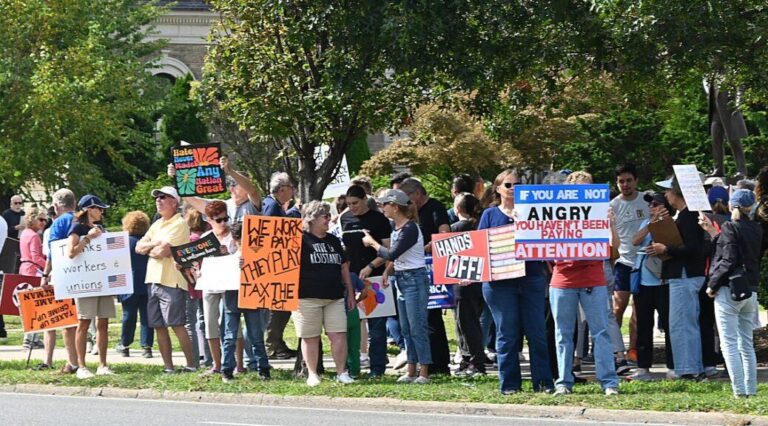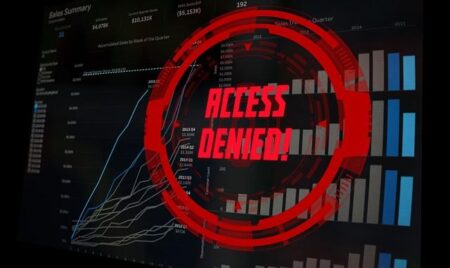Hundreds of “Workers Over Billionaires” Labor Day rallies took place across the United States Monday, as thousands of demonstrators gathered to demand economic justice and greater protections for workers. Organized by a coalition of labor unions and progressive groups, the nationwide protests highlighted growing frustrations with income inequality, corporate greed, and stagnant wages amid rising living costs. The demonstrations, held in cities from coast to coast, underscored the ongoing debate over the distribution of wealth and the role of billionaire business leaders in shaping America’s economic future.
Workers Demand Economic Justice in Nationwide Labor Day Protests
Across major cities in the United States, thousands of workers united under the banner “Workers Over Billionaires” to demand fair wages, improved working conditions, and stronger labor protections. These rallies, organized by a coalition of labor unions and progressive advocacy groups, highlighted growing dissatisfaction with income inequality and corporate influence over policymaking.Protesters carried signs and chanted slogans calling for a living wage, affordable healthcare, and the right to unionize without retaliation.
The nationwide demonstrations underscored key demands, including:
- Raising the federal minimum wage to $15 per hour
- Expanding access to paid family and medical leave
- Implementing stronger protections against workplace harassment and discrimination
- Ensuring corporate accountability through progressive taxation
| City | Estimated Participants | Key Issue Highlighted |
|---|---|---|
| New York | 10,000+ | Minimum Wage Increase |
| Chicago | 7,500 | Paid Leave |
| San Francisco | 5,000 | Union Rights |
| Atlanta | 3,000 | Workplace Safety |
Union Leaders Highlight the Growing Wealth Divide and Call for Policy Reform
Union leaders have mobilized a growing chorus of voices demanding urgent intervention to tackle the ever-widening economic gap in the United States. Speaking at rallies nationwide, key figures emphasized the stark contrast between soaring corporate profits and stagnant wages for frontline workers, underscoring the need to realign fiscal policies to prioritize labor rights and fair compensation. Highlighting a surge in union membership and collective bargaining power, these leaders stressed that economic justice is no longer a fringe concern but a essential demand shaping the national labor agenda.
Key demands raised at these gatherings include:
- Implementing progressive tax reforms targeting the ultra-wealthy
- Raising the federal minimum wage to a living wage standard
- Strengthening protections for collective bargaining and union formation
- Expanding access to affordable healthcare and paid family leave
- Addressing systemic barriers contributing to wealth inequality
| Statistic | Current Data | Union Goal |
|---|---|---|
| Gini Coefficient (Wealth Inequality) | 0.48 | 0.35 or lower |
| Federal Minimum Wage | $7.25/hour | $15/hour |
| Union Density | 10.1% | 15%+ |
Community Organizers Push for Stronger Labor Rights and Fair Wages
Across major U.S. cities, community organizers rallied together, demanding extensive reforms that center on labor rights and equitable wages. The movement, characterized by a surge of grassroots energy, highlighted the urgent necessity to dismantle systemic inequalities within the workforce.Organizers emphasized the importance of:
- Strengthening minimum wage laws to meet living standards.
- Expanding collective bargaining rights for all workers.
- Enhancing workplace safety protocols amid ongoing health concerns.
- Advocating for paid family leave and healthcare benefits.
These initiatives, pushed forward by a coalition of unions, advocacy groups, and frontline workers, underscore a collective resolve to challenge corporate power dynamics. Demonstrators held banners and chanted slogans that demanded accountability and systemic change from policymakers and executives alike. Below is a snapshot of key demands and their alignment with federal labor policies:
| Demand | Current Federal Policy | Advocate Goal |
|---|---|---|
| Minimum Wage Increase | $7.25/hour (Federal) | $15/hour nationwide |
| Collective Bargaining | Limited sector coverage | Expanded rights across all industries |
| Paid Family Leave | No federal mandate | Guaranteed paid leave for all workers |
Advocates Recommend Expanding Worker Protections to Combat Corporate Influence
Labor activists and worker rights advocates are calling for urgent reforms aimed at curbing the outsized influence of corporate interests in shaping workplace policies. Emphasizing the need for stronger legal safeguards, these groups argue that unchecked corporate power frequently enough undermines fair wages, job security, and workplace safety. By advocating for expanded protections, organizers seek to empower workers to collectively bargain, protect whistleblowers, and ensure equitable treatment across all sectors.
Key demands put forward include:
- Enhanced collective bargaining rights to strengthen union formations.
- Legislation limiting corporate lobbying and political contributions.
- Robust whistleblower protections for exposing corporate malpractice.
- Stricter enforcement of wage and safety standards.
| Advocate Group | Primary Focus | Recent Impact |
|---|---|---|
| Workers United | Union Expansion | Helped pass statewide collective bargaining bill |
| Corporate Accountability Project | Lobbying Reform | Exposed major corporate lobbying loopholes |
| Whistleblower Alliance | Legal Protections | Increased protection for employees reporting fraud |
Insights and Conclusions
As Labor Day draws to a close, the “Workers Over Billionaires” rallies have underscored the growing demand for economic justice and labor rights across the United States. With hundreds of events held nationwide, activists have highlighted disparities in wealth and called for stronger protections and fairer wages for workers. The demonstrations signal a persistent and organized push to shift the national conversation around labor policy and corporate accountability, setting the stage for continued advocacy in the months ahead.




